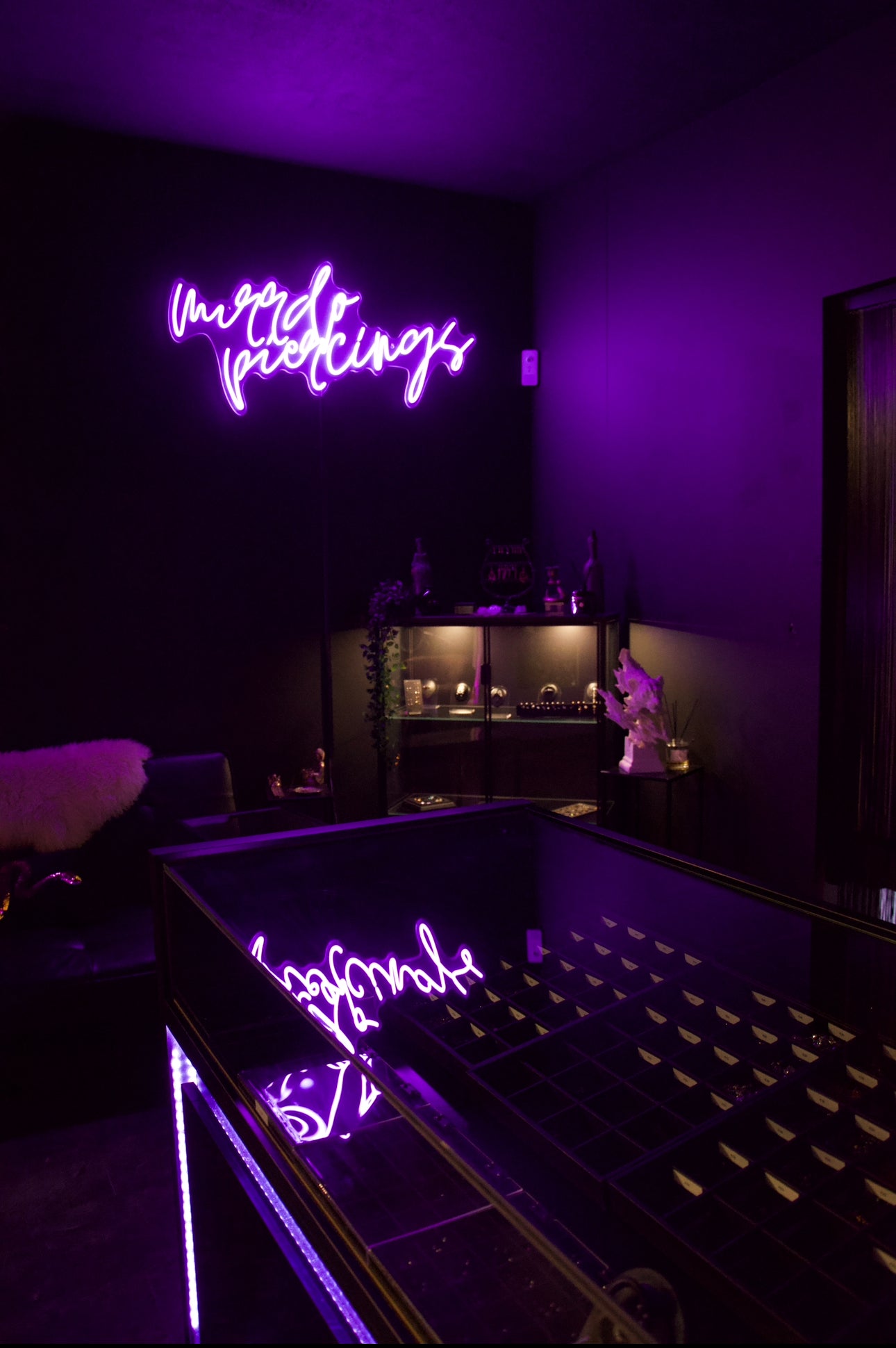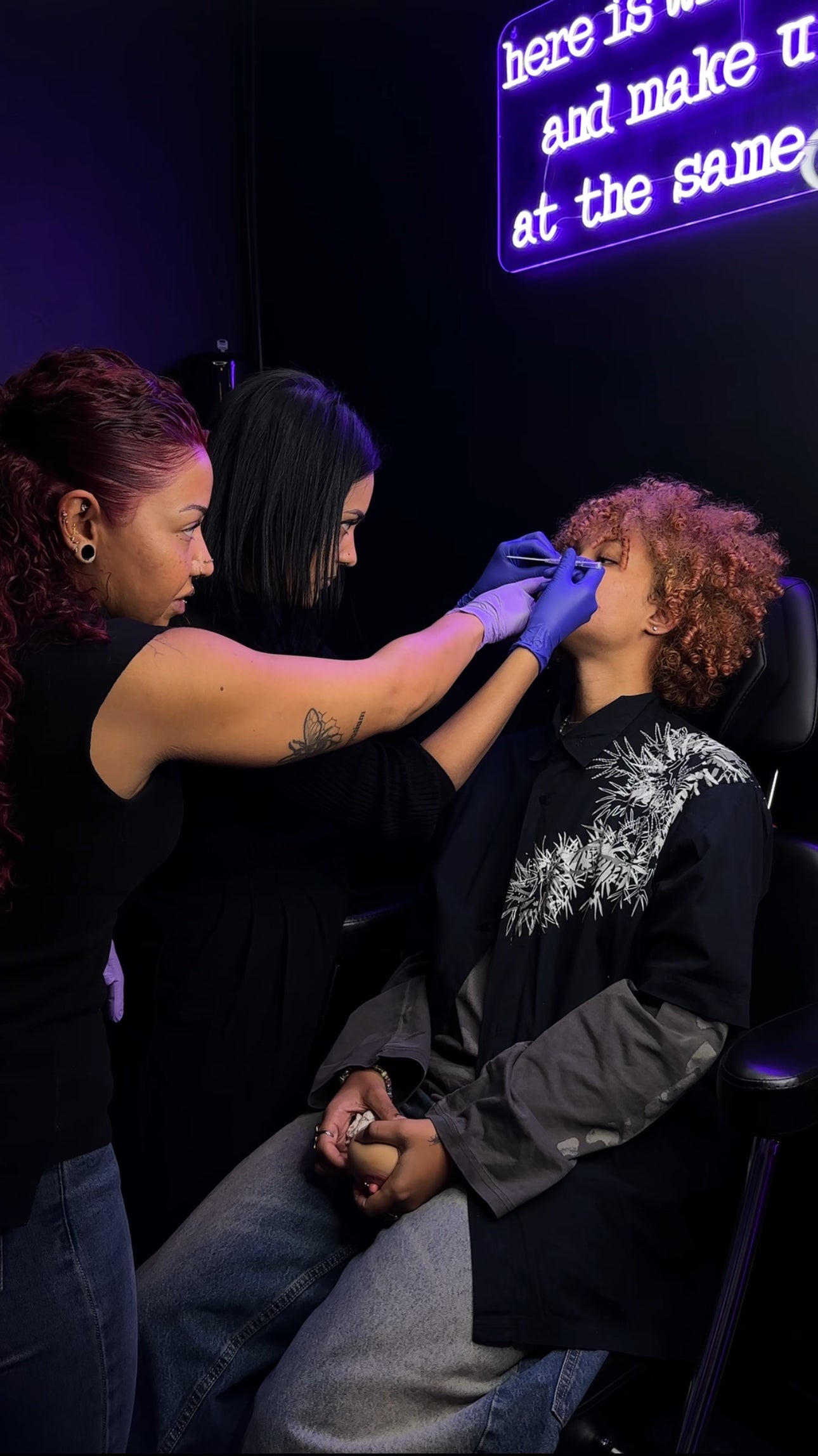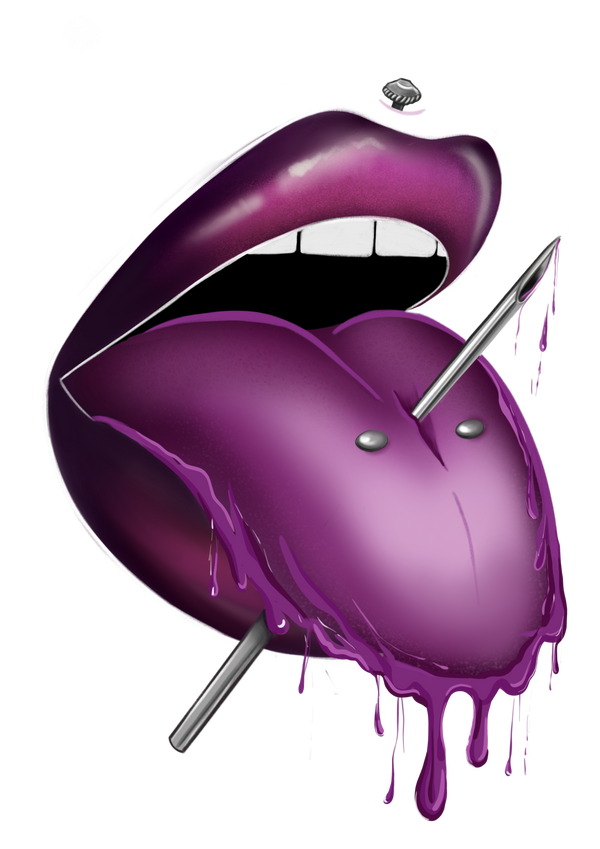WHY YOU SHOULD AVOID EXCESSIVE WATER.

-
THE WATER.
Swimming pools, lakes and oceans contain many bacteria and other microorganisms that can cause infections. Even chlorinated pools are not completely clean and can damage new piercings.
-
CHEMICALS.
Chemicals like chlorine, which are used to treat swimming pools and hot tubs, can be harmful to healing piercings. They strip the skin of its natural oils and disrupt the balance needed for healing. This can cause irritation, redness, and slow the healing process.
-
SEA SALT WATER.
While it may seem like seawater can help heal piercings because of its salt content, it’s actually not a good idea. Seawater is full of bacteria and other substances that can cause infections if they get into a fresh piercing.

To ensure that new piercings heal properly and to prevent problems, it is important to keep them clean and dry.
-
SWELLING.
Getting your piercing wet, especially in pools or hot tubs, can cause the area around it to swell and become redder. This happens because the skin absorbs water, causing the surrounding tissue to bulge for a moment.
-
STEAM AND SAUNAS.
The steam from baths and saunas can open your pores, allowing bacteria or irritants to enter your piercing. Additionally, the heat can cause the area around the piercing to swell more and feel uncomfortable.

Consult a professional piercer if you have any concerns or questions.
TAKE GOOD CARE OF YOUR PIERCING.
Wait until your piercing has fully healed before it comes into contact with water, steam or heat. This usually takes a few weeks to a few months, minimum 6 weeks. Always follow the aftercare instructions of your piercer to ensure your piercing heals properly.

